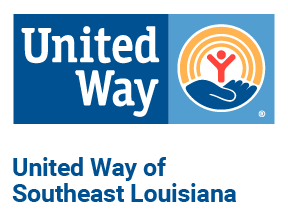At a time when bipartisan policy change seems infrequent, if not impossible, Louisiana lawmakers and Governor Edwards successfully enacted sweeping prison reforms aimed at reducing the state’s world-leading incarceration rate and its $700M annual price tag. The policy wins can be credited, in large part, to the support from LABI and many in the state’s business community.
The collection of 10 bills signed into law last month drastically overhauled Louisiana’s criminal code on sentencing, probation, parole, and re-entry. Law dictates that the reform package’s cost savings – more than $250 million over the next decade – must be invested, in part, toward evidenced-based reintroduction programs.
For too long, our justice system has filled its prisons with people who lack adequate education and well-paying jobs, which leaves us with an extraordinary responsibility to ensure that every individual released into the community has the tools needed to successfully reintegrate into the community.
United Way of Southeast Louisiana’s partnerships with the Louisiana Prisoner Re-entry Initiative (LA-PRI), Smart on Crime, and the Louisiana Department of Public Safety and Corrections are fulfilling that responsibility.
Our data-driven, results-focused efforts – guided by our Blueprint for Prosperity – are laser-focused on affording those formerly incarcerated the ability to attain financial stability with the skills, resources, and opportunities necessary to access basic needs.
Data suggests as many as 75 percent of released prisoners are still jobless up to a year after release, even those actively job searching. Which leaves one to wonder how someone released from prison can afford housing, child care, health care, food, and transportation.
This fact alone underscores the importance of LA-PRI’s focus on workforce development and its goal to create “transitional and permanent jobs by working with Louisiana’s business community.”
In order for our community to benefit on the whole, we must provide the training and education for those individuals to transition into highly-sought-after employees, ones that can positively contribute to our state’s economy. Which is why UWSELA takes a holistic approach that not only addresses the symptoms of poverty faced by individuals, including those formerly incarcerated, but creates pathways of prosperity with access to housing, health, employment, and education.
We are fortunate to work alongside visionary organizations like Huey and Angelina Wilson Foundation, Greater New Orleans Foundation, Baptist Community Ministries, and the Kabacoff Family Foundation in this effort to affect meaningful change for these individuals, their families, and communities. Without these organizations, the Louisiana Workforce Commission, the Louisiana Housing Authority, the Louisiana Community and Technical College System, and the boots-on-the-ground innovators working in corrections and parole would not have been able to begin implementing the LA-PRI plan throughout our community.
It’s time for the remaining stakeholders who backed the Legislative reform package to return to the table and move the policy wins forward. The courts, law enforcement officials, and Parole Board must also come forth with the leadership necessary to support LA-PRI and similar reintroduction programs.
Louisiana took the first step toward prison reform. It’s time to take the next step forward in prisoner re-entry to create pathways of prosperity for the men, women, and families of Southeast Louisiana.

Michael Williamson
President and CEO
United Way of Southeast Louisiana
